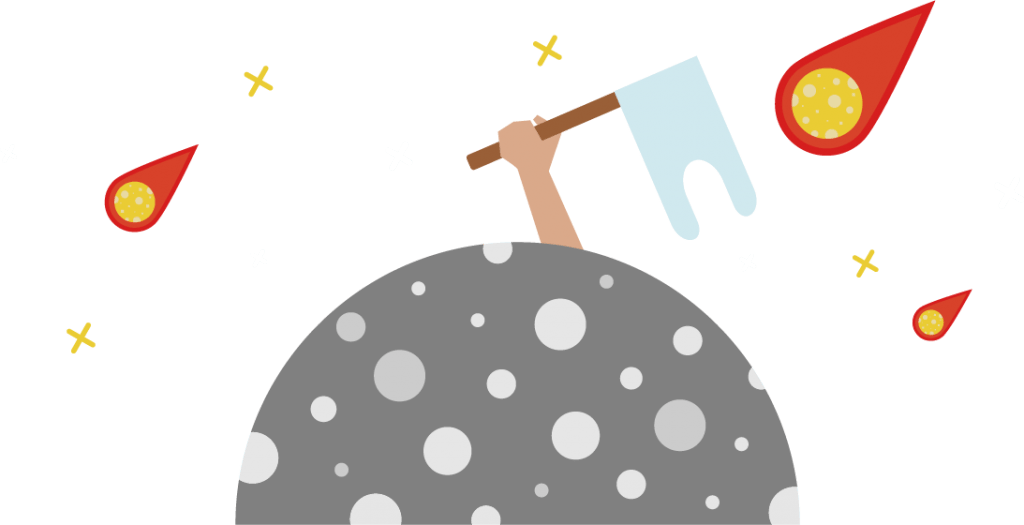Preston Snyder 00:00
Have you ever made plans? And then told the people you’re making plans with? Oh, I’m sick. And really, maybe you just wanted to go back to bed.
Alyssa Mullins 00:12
I, you know, it might have happened like once or twice.
Preston Snyder 00:15
So does that make you a liar? Let’s talk about it.
Alyssa Mullins 00:23
Hi, everyone. I’m Alyssa.
Preston Snyder 00:25
And I’m Preston.
Alyssa Mullins 00:26
And this is your weekly social.
Preston Snyder 00:28
So an interesting report came out about how often in communication, we lot looked at mediums because there there’s this perception that because there’s more distance between us, with the pandemic, everything else that’s happened, there’s now a separation of people from people so that flying is rampant. And so researcher, David Markowitz took a look and was like, Okay, so what’s the case, he used a larger sample size, recreated the old study, which was right before the iPhone even released, and it’s like, okay, let’s look at it now that it’s there. And it’s out what he found was
Alyssa Mullins 01:08
all liars, we’re liars, everyone everywhere. Now, maybe
Preston Snyder 01:12
10% of the time, okay, not off. And to be honest, now between email, texts, social media, phone or video, which do you think we lie the most?
Alyssa Mullins 01:27
I would think social media, especially on things like Twitter, or Facebook,
Preston Snyder 01:34
you would think, yeah, but in the context, it was described. No, video chat and phone call are the two things things that were not recorded. You’re kind of just free to talk. Things that couldn’t be referenced back are more likely to lie even then, at most out of the sample size 12%. It was video. Really interesting study that is like the data doesn’t match this idea that we are constantly lying.
Alyssa Mullins 02:05
Liars, sorry, liars, as in like, lying about where I had dinner. Like I said, I went to the fancy restaurant. But in reality, I went to McDonald’s and just put a little bit of extra sauce on my fries to make it fancy, maybe put some green onions on top. Or liars about just like art in general, like what defines a
Preston Snyder 02:26
liar. It was just communication. That was untrue. I said something that was untrue, based on what I interpreted. Which asks another question if we go back to social media, because that’s the M brain example. Do you have any influence or envy? Are you ever experienced that you’re on Instagram, and you see the beach pictures or the car pictures or the this is what I do all day, every day,
Alyssa Mullins 02:56
the organized desk and coffee setup? That’s a very clean and neat and organized and now all your folders and files are perfectly arranged? Yeah, I see that. I wish that could be me right all the time.
Preston Snyder 03:10
And that desire of Oh, I wish of only but as it tends to turn out, that’s where we see fabrication exist more, how many of those house I live in is a rented hotel room, how many of this car I just bought is a rented Lambo all of these things, that the perception of success or perception of wealth is more important than actually having it. So in that context, not outside the purview of the study. Are we liars in minutes?
Alyssa Mullins 03:47
And that’s where it’s interesting to see in my opinion, and what I see on my personal account and everything how these influencers you know, you have ones that maybe don’t tell you everything that goes on behind the scenes, so for the one that does rent the Lambo or does pay that one day or one night at the fancy hotel and just says view for the night and, you know, kind of living that luxurious life and then there are other influencers who do kind of break that wall a little bit and they say, Kay, this is the post that you see and yes, everything is beautiful and all of this stuff. Here’s everything that happened behind the scenes like all the effort all of the if you’re an influencer maybe at the beach and you’re posting a photo where you’re at the beach, it’s like here’s how I had to set up here’s me sucking in everything here’s me doing this and that that’s hard because life is such a general term being a liar. So general and in my mind, so abstract, because there are the Little White Lies and then there are the little like surprised lies that are usually held back for a positive reason. So I
Preston Snyder 04:58
or even Time, things that were true that turned out that there’s a large discussion at play in the culture, especially with Facebook’s in the news every day for something that didn’t happen, there’s back and forth. We didn’t know what’s going on. And the concept of a liar has been brought back to the forefront. When we talk to each other, we’re starting to find, now we’re pretty honest with each other in the context of person a person. But as we build ourselves, our portfolios, our personas, our social media profiles, are we playing pretend that’s an ongoing conversation. So maybe this is a weird thing to go through and be like, alright, Am I honest? Who I am? Am I doing this on purpose? Why do I interact with the digital world in the way I do?
Alyssa Mullins 05:54
If you’re like me, and you look around at other people’s social media feeds just to see what other influencers and other people in general like my friends, and everyone’s doing, you can see the people that will take the time and put in the effort to make their feed look, a certain way have this general aesthetic, whether it’s all black and white, whether you have white borders, around your photos, or everything’s really like floral and vibrant. And then you have other people which in all honesty, a lot of it’s mostly like older family members, and those who are not as in tune with social media, those are the bit more like organic, real raw, like, No, this is what my desk look like, there’s mc chicken right there. And it’s a bit more disorganized, a bit messy. And that’s the clear life picture, versus those who take that time to put in that aesthetic, not to say that that’s not their life, because in some ways it is. But also in other ways. There’s always other stuff that happens behind that camera behind this, behind the scene and all of this, which is just a good reminder for everyone, like, you can have your online presence and you can have your real life and how those two crossover is essentially up to you. But also, it’s it’s good for you for influencers for your personal brand for all that you do, too. In the end, as long as what you’re doing is holding true to who you’re, who you are and where your values are at. That’s all I can really ask of most influencers. I like seeing that.
Preston Snyder 07:29
As the technology evolves as we enters what looks to be the next wave of internet going into meta where our identity is becoming even more involved with our life and our public facing perceptions. With allies after do will leave you with a deep philosophical note. And of course, if you want more existential dread or maybe just some uplifting news, feel free to like, comment, subscribe, ring the bell and let us know what you think. Does it even matter? Yeah,
Alyssa Mullins 08:02
we want to know your thoughts. So
Preston Snyder 08:04
do you keep ghosting people?
Alyssa Mullins 08:07
No. I haven’t done that.
Preston Snyder 08:10
I have to go cancel an appointment. I mean,
Alyssa Mullins 08:13
one second, while I go bail out on a reservation. But thank you guys for watching and we will see you next week for the next weekly social bye







